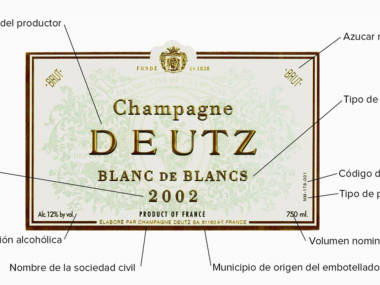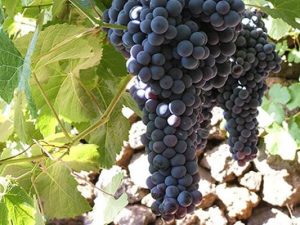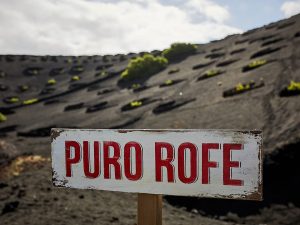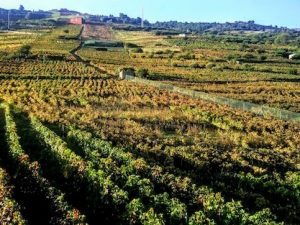There are different ways of working in a vineyard when it comes to making wine: can be natural, biodynamic and organic. But what differentiates one from the other?
The wine can be evaluated from its sensory tasting, how it was made, the ingredients that were used to make it and its ageing. However, there are many experts in the area of wine that divulge one type of wine more than another because of the way it is made.
Do you want to know more about this, read on!
Demeter Certification
When we talk about wines we also hear about the Demeter philosophy. This is the main biodynamic qualification and it is the one that guarantees us a certification and approval of quality in relation to its agricultural activity and the requirements requested for the winemaking process
Thus, Demeter applies a set of standards for biodynamic winemaking which must be fully complied with. Therefore, when buying a biodynamic wine, one should make sure that it has a label which assures the Demeter certification and which offers the quality of the wine itself.
It must be taken into account that in order to be able to apply a Demeter certification to our product, we must first have the certificate of organic cultivation and then proceed with the standards requested by the Demeter certification.
One of the compulsory regulations that Demeter requires for biodynamic wine are:
- That a minimum amount of sulphur dioxide is used.
- That priority is given to the application of physical methods rather than chemical methods. In most cases wineries avoid the energy-intensive and raw material-intensive method.
- Negative effects on the environment must be reduced. Consequently, every single product that has been processed has to be treated for its use.
Natural wines
Natural wines are based on an ethic of winemaking that starts with the least possible intervention from the cultivation of the grapes in the vineyard to the production of the grapes from which the wine is made to the transformation of the product that we then taste.
In the world of winemaking, natural wine is a bit criticised because it is very common to use the word natural for any product and it is often said that they are wines that are not made with the best practices.
However, natural wines have certain parameters for their elaboration. They seek in their totality the traditional practice for their elaboration and rely on organic farming.
Their main rule is to ensure the minimum intervention of the human factor so that the winemaking process is done in the most natural way possible
With all this philosophy they seek to highlight the flavours of the grapes used in the product, a high quality in the wine and a production free of herbicides, pesticides, fertilizers or any chemical product.
Criteria for making a natural wine
A natural wine is governed by a series of criteria and characteristics for the effective production of its products. So if you want to consume a good natural wine, you must make sure that it has these parameters:
- Use grapes originating from organic or biodynamic agriculture.
- Alcohol fermentation is carried out without incorporating artificial yeasts.
- Malolactic fermentation is carried out without incorporating bacteria.
- The sugar level, acidity, colour or alcohol may not be altered.
- The product may not be sorted or filtered.
- No chemicals may be used.
- No sulphites may be added.
- No manipulation of the texture of the wine.
- No use of enzymes.
Biodynamic wines
Biodynamic wines are governed by a very specific ethic. In which, winemaking works from the balance with the ecosystem, protects the biological diversity and is in search of rescuing the microbial activity of the soil.
One of the purposes of biodynamic wine is to be able to maintain vineyards with a natural quality and completely healthy, with the production of grapes with a good nature. Therefore, it is forbidden to use any kind of fungicide, pesticide or chemical substance.
The production of biodynamic wines is governed by the lunar and astronomical calendar as a guide to natural cycles, as this is believed to influence the life of the plants in the vineyard.
All biodynamic wine must be inspected by the organisation in charge of biodynamic certification, Demeter. In this way, the winemaking process is regulated for sale.
Criteria for biodynamic wine production
In order for a biodynamic wine to be regulated and accepted, it must be based on certain criteria and characteristics for the production of the product. All biodynamic wines must comply with these parameters:
- It is forbidden to use microorganisms that have been genetically modified.
- No use of any type of fining agent that is not authorised.
- Extreme use of gravity techniques in the winery.
- No correction of the result of the harvest.
- Use only indigenous yeasts.
- The use of sulphur dioxide is prohibited.
Organic wines
The organic wines are governed by the principles and rules of organic agriculture. It is determined by the non-use of synthetic chemicals and genetically modified organisms, the use of recycled organic materials and the verification of pests or diseases.
Consequently, organic wines improve the fertility and structure of the vineyard soil, promote biodiversity and protect the quality of water and air, taking care of the ecosystem with the production of organic wines.
Therefore, the vineyard and the winery must obey a number of principles and at the same time demonstrate the regulation of the implementation of organic additives.
For the production of organic wines, the most essential is a vineyard with a healthy soil, with a large amount of nutrients and a biodiversity that provides the vineyard with a good development with good health and resistance to pests.
To make an organic wine there are criteria for both the vineyard and the winery.
Criteria in the vineyard for organic wine production
Organic wine is made from organically grown grapes. The use of chemical products applied to agriculture is prohibited and the organic vineyard must be free of chemical fungicides, pesticides or herbicides.
Chemical fertilisers and mineral fertilisersmay not beused in an organic vineyardeither . The authorised organic fertilisers are animal manure, the biomass that the vineyard produces naturally and the vegetable compost that originates from different sources.
By consuming an organic wine, we can be sure that we are not introducing traces of these products into our organism.
It is important to point out that the use of sulphur and copper sulphate in vineyards is authorised.
Criteria in the winery to elaborate an organic wine
For the efficient production of an organic wine, several oenological practices are prohibited
Partial concentration by cooling is prohibited, sulphur dioxide by means of physical processes, electrodialysis treatment, de-alcoholisation of the wine and treatment with cation exchangers are excluded.
In the same way, organic wine must not be produced using genetically modified organisms due to their incompatibility with biodiversity.
Differences between natural, biodynamic and organic wines
It can be said that each of them share similar philosophies regarding the care of biodiversity and the ecosystem. However, there are important differences between them
Biodynamic wines are governed by following the cycles of nature and the lunar calendar, among other criteria that add to the list of a good wine
While natural wines are made without chemicals and with minimal human intervention. And finally, organic wines are guided by respect for mother earth, but sulphur can also be added.
And you, now that you know these terms in the wine world, which appellation do you prefer?






